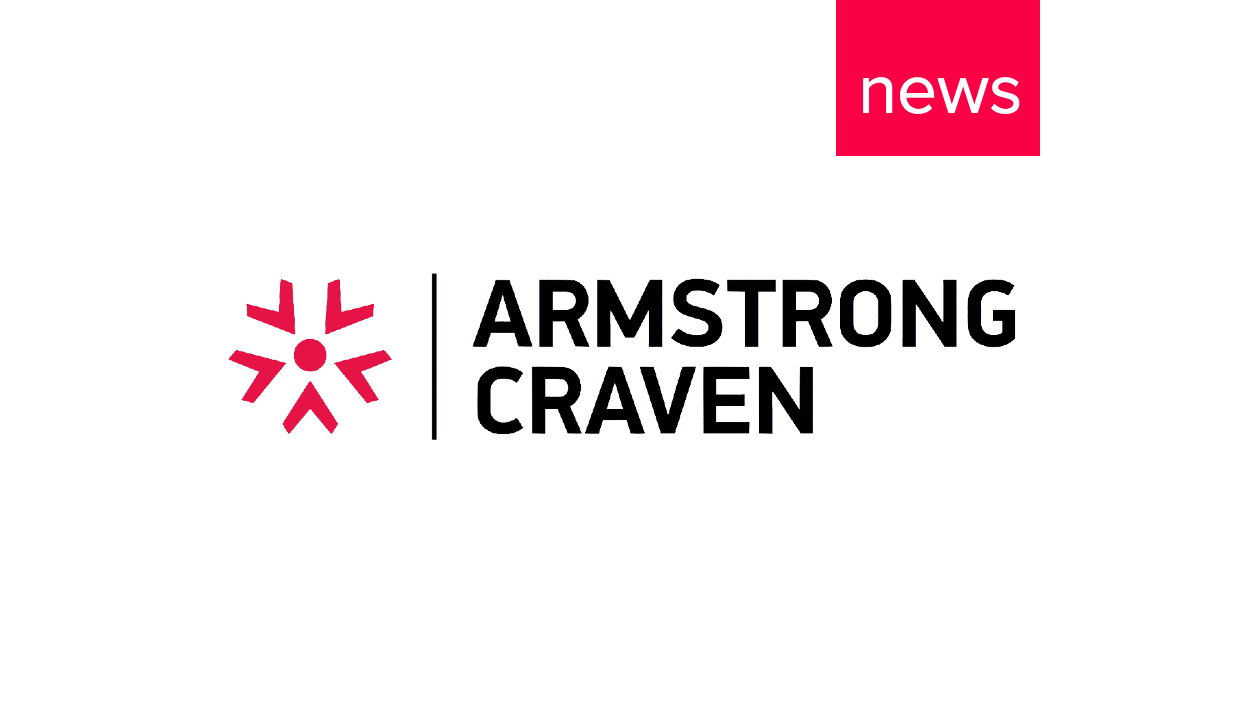Closing the Skills Gap in the Talent Acquisition Function
03 October, 2022In partnership with The People Space, Elizabeth discusses the skills gap facing TA and how talent professionals can gain the skills needed today while preparing for tomorrow’s needs.
There's a challenge for businesses to upskill talent acquisition (TA) quickly enough to keep up with this broader remit that is growing. The market's accelerating and, although that is led by tech, it's not confined to tech by any means. So alongside that gathering pace TA itself does need to change. And I think that when we look at the skills gaps within TA, there are really maybe three critical skills that we think businesses ought to be focusing on either building today or buying for their TA teams.
Three critical Talent Acquisition skills:
1. Data literacy
Number one, and you are asking a talent insight practitioner and so it is going to be about data for us first and foremost, so number one is data literacy. Now we don't need TA heads to be data scientists or even client intelligence practitioners, but they do need to be able to ask for the data that they need, assess the integrity of the data they're given and then understand it and analyse it. That just wasn't part of the persona for that role 10 years ago.
TA teams today are usually investing in TI, that's talent intelligence tools, so a Horsefly or a TalentNeuron, and then of course AI and machine learning enabled sourcing tools, but they still face challenges using them effectively, and understanding them using the output. This is a skills gap that organisations need to meet head on because that data is in so much demand now, both internally at the highest level and of course on a wider scale from investors.
2. Data storytelling
Then on top of data literacy, I think one that's come into focus for us as practitioners is data storytelling. That's what we have in mind, when we're building the team here. Absolutely it applies to TA as well. Now that we have data literacy, how do we share the data in an effective and engaging way for stakeholders who don't? I think that comes down to getting it where it needs to go by telling a story using the data, with the sparing use of data visualisation. It's very close to my heart but sparing use of data visualisation and focusing not on your methodology but on your findings and your recommendations. So what we call the 'so what' factor.
3. Knowledge management
And then finally, I think I did promise three, my number three would be, and it's less glamorous but it's not less important, would be knowledge management. This is a real, practical challenge for those data-enabled, data-literate TA teams today. So you are the ears of the business in the talent market. You've got teams, could be hundreds of people in bigger clients, speaking to potential candidates about the business every day, getting reams of useful information about skills, about pay, about profiles, about ways of working, about direct talent competitors.
But where is it all going? Where is it stored? Who can access it? Whose job is it to check that it's all joined up, indexed, accessible and compliant with GDPR or the regional equivalent? As old-fashioned as it may seem, knowledge management needs a champion in every TA team, a kind of librarian for talent intelligence data. We see time and time again TA teams either mishandling data or missing great opportunities. By having a champion, they are more likely to capture, store and share that data in a way that could be potentially incredibly powerful.
How talent intelligence help TA teams in practice
I can think of one particular case in an absolutely critical regional office in APAC, the client, who was a major global European headquartered cosmetics business, came to us to say that there's some fantastic talent in this particular regional market. We've spoken to some fantastic people, but we find that offers aren't accepted. Yet, there are no real reasons coming from potential candidates, why they drop out of the pipeline at this point. We were able to go to market completely compliantly as a third party, speak to both individuals who'd fallen out of the process and great talent in the market that hadn't picked up the call for this particular client, to find that there was either a real or imagined internal cultural issue in this one particular office.
In this case, candidates believed that there was a cultural issue in this office that meant because it was not HQ, it was so far from HQ, that there was no progression beyond the national/regional director-level role. In this case, you could argue perception is the truth because the candidates weren't picking up the phone.
And all the client needed to do was tweak the wording of the approaches to say this is a global role, it's based in this market because we want to tap into the great talent here, but you would already be in a global role. There is the opportunity for progression both in this market, to stay where you are and progress into bigger global roles and also internationally to move around the business and to go to HQ in Europe if that was what you want for your career.
This is not a role that is going to be cut off because it is regionally located. It is a fully global role; it gives you a huge amount of room to play. That was the cultural shift they needed to onboard what turned out actually to be fantastic talent, but more importantly, to get everybody to the table.
They had a funnel of good talent in a region that they'd gone to specifically because it was well known to be home to exactly the kind of talent that they were looking for. And so that was an almost overnight shift once the new messaging went into play in that market. That's just one example of times where candidates won't feed back to internal talent acquisition, even when they've had a great recruiting experience. In a lot of markets candidates don't feel they can say to a potential hiring manager the reason I'm not taking the role is because of a cultural issue e.g. "There's a rumour that you have a reputation" or "I've been told by my network this...". That is something that we (Armstrong Craven) can effectively diagnose really quite quickly and that is really powerful for TA.
What’s next for talent acquisition?
So I think the next big change for TA that we're already starting to see the edges of is getting and staying ahead of all the fantastic technology that is available to them now. So the rise of automation for HR and recruitment has absolutely increased both access to talent and efficiency day-to-day for teams. But it is really a mixed picture because we urgently need to train TA professionals to use and understand the AI and machine learning-enabled tools that they've been given, just to give one example, and then drive adoption as well in those teams who might be more accustomed to a traditional science of search approach. So you bring in X-ray search using what's available online and, of course, automation. Inviting AI into the search and screening process for the people that we get into our business really opens up big questions of ethics, equity and representation and TA just is not equipped to answer those questions.
I think there's a huge amount of appetite to get to grips with the new tech, use it all and get the efficiency out of it. I think that businesses are pushing hard to get TA to adopt what they can adopt, to buy when they need to and then speak for the new technology.
But then there will always be a case for using the right providers at the right time. Just because of the amount of expertise that you need to build up to use these tools effectively, get the answers you need and turn it around. Nobody has that kind of bench strength, that kind of overflow capacity. If there is suddenly a crisis and in six weeks, you need to turn around a feasibility study to build a brand new team, think about where to put them and what the cost of living is like. Where are the skills anyway? What do the office spaces look like? What are the personas involved? I think there will always be a case for external providers if you need to turn something around rapidly. If you need to make a business case and improve ROI for talent intelligence within TA itself, there'll always be a case for switching on third-party capacity when it is needed. That is something that just isn't going to go away as TI teams get more sophisticated. It will then have to evolve as TA and talent intelligence evolve.
What are the first steps TA professionals can take to become future fit?
So I think some of this depends on whether you are inherently motivated by the idea that to come to work and do a great job you need to learn every day. If you are not under too much pressure and your other working conditions are good, and you find your work fulfilling, I think there's something to be said for saying "what a great challenge for me today to get to grips with this whole new suite of tools and skills that I need to develop". But I agree that when we lay it all out, as we have done, getting TA future fit does feel like a huge job. I think what we tell clients sometimes, is that it is a journey that we are all on together. So much of it is so new that I don't think there needs to be any sensitivity about progress because there simply has not been time for anyone to fall behind.
We need to think of achievable first steps, not so technical we need to hire a new team, not so elaborate that day one we need loads of budget. We always encourage clients to think what data are they already gathering. Where is that stored? What can we do with it today? Then they can think about what amazing new data is out there that they could have, what they need and what they should do with that tomorrow. I think it comes down to ambitious, but achievable, first steps. As with anything new and we need to learn, starting as opposed to too much feasibility testing and hiring and spending and buying and looking at the market.
Just starting and doing something with some data pertaining to talent. I think that is what we ask clients to think when they think about building TI, in this world where there's a huge amount of information at our fingertips. The most important thing is that no one has fallen behind and in order to not fall behind, we have to get started with what we have as opposed to making a huge build of what we could have in 18 months or five years.
If you want to learn more about Talent Intelligence, download our Talent Intelligence report or Speak to our team today to see how we can help you.
At Armstrong Craven, with Talent Partners on five continents and 30+ years of experience, we support clients worldwide to overcome the most complex tactical and strategic challenges concerning talent. This is evidenced by the 2,500+ projects across 110+ countries we've delivered over the last five years.






